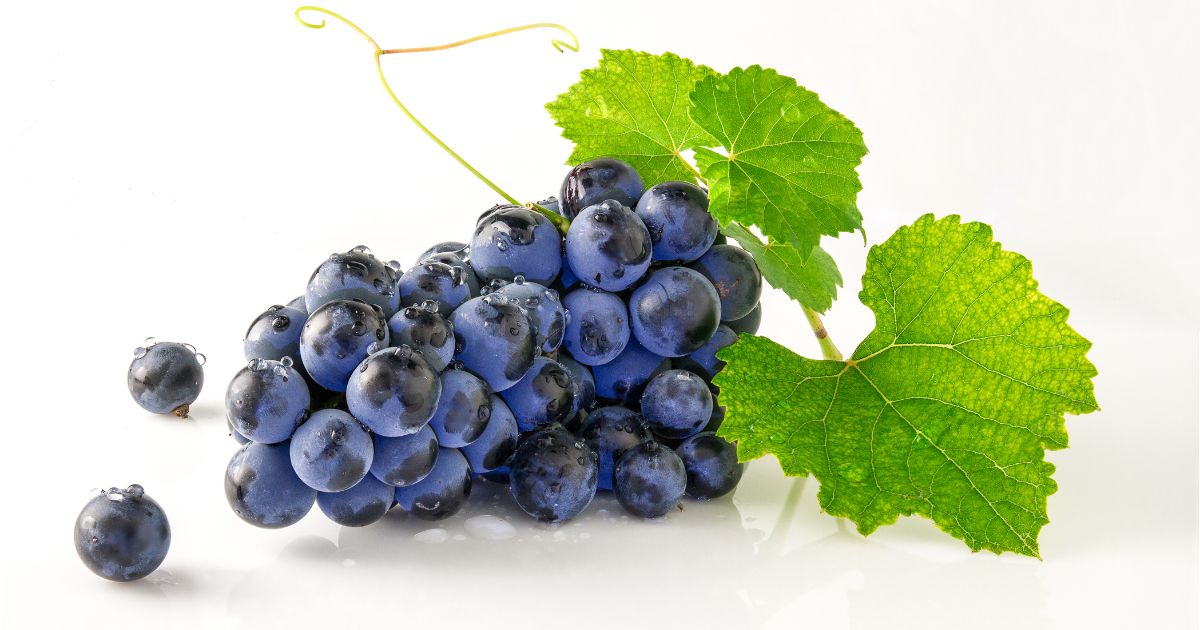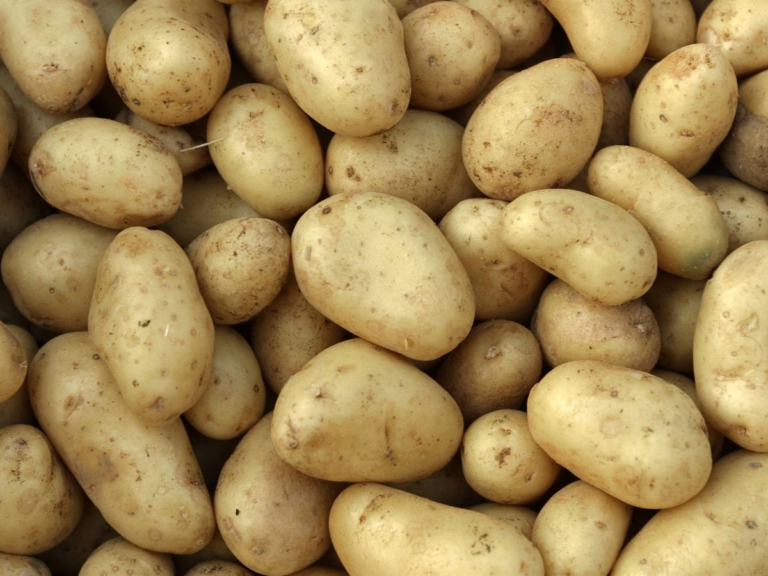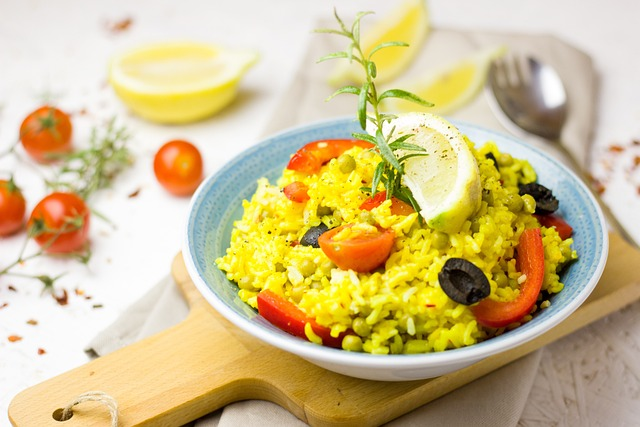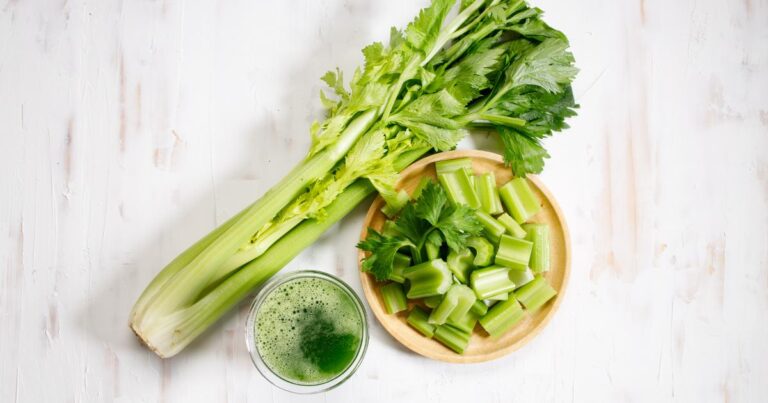7 Reasons Why I Crave Grapes All Night and Grapes All Day
One Grape at a time, then a bunch. How many grapes until you wonder “Why Am I Craving Grapes?” What do these little juicy nuggets of deliciousness and vitamin C have that make me want just to eat them all day? From the nutritional wonders packed in each grape to their hydrating prowess, there’s much more going on than meets the eye (or the palate).
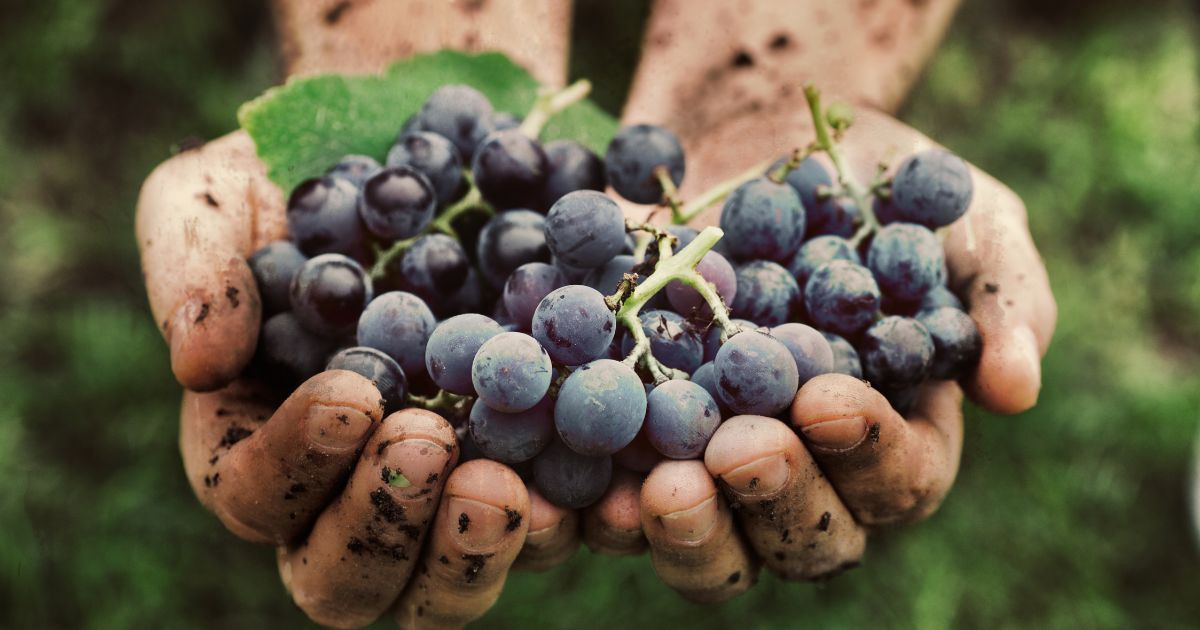
Have you ever reached for just one more grape only to realize you’ve almost finished the whole bunch?
You’re not alone in this grape-craving boat.
As a seasoned chef who’s not only cooked with many grape varieties but has also experienced my fair share of these grape cravings.
Have you ever found yourself unable to resist reaching for just one more grape?
Let’s chat about why these tiny, juicy wonders are so irresistible.
I’m here to unravel this grape mystery. Why do these little fruits have such a hold on our taste buds and minds?
We’ll also discuss the psychological aspects – why does munching on grapes feel so comforting? What makes them a go-to snack, not just daily but especially during pregnancy?
Some Crave Olives or cucumbers, and some pregnant women even crave fish or beans, but what is the reason behind these grape cravings, and what do they mean?
But wait, there’s more. We’ll discuss how grapes fit beautifully into a health-conscious lifestyle, being a low-calorie yet nutrient-rich option. And for those curious about the effects of grapes on blood sugar levels, we’ve got you covered.
Plus, we’ll stroll through the cultural and seasonal significance of grapes, adding depth to our understanding of this fruit’s popularity.
Table of Contents
Why Am I Craving Grapes?
Whether you’re snacking on a bunch of crisp, green grapes or savoring the sweetness of the deep purple ones, join me in discovering the many reasons behind our grape cravings.
1. Nutritional Benefits
Alright, let’s talk about what’s inside these little orbs of delight.
When I first started incorporating grapes into my dishes, I was amazed by their nutritional punch. It’s like nature packed a tiny health bomb in each grape.
The Vitamin Powerhouse
Vitamin C: We’re all about that immune boost, right? Just a cup of these beauties, and you’re getting a decent chunk of your daily Vitamin C requirement.
Vitamin K: Essential for blood clotting and bone health. It’s like eating for your future self.
Antioxidants Galore
Resveratrol: Heard of this one? It’s the star in red grapes, linked to heart health, and even touted for its anti-aging properties. It’s like a youth potion in a peel.
Flavonoids & Polyphenols are your cell’s little protectors, fighting off those pesky free radicals.
Fiber-Filled
A friend to your digestive system. Eating grapes is like giving your gut a helping hand, keeping things moving and grooving.
Natural Sugars for Energy
As a chef, I’m always on the move, and let me tell you, grapes are my go-to for a quick, natural energy boost. Their natural sugars are perfect for a mid-afternoon pick-me-up.
So, when you’re munching on a grape, you’re not just satisfying a craving; you’re giving your body some much-needed nutrients.
It’s like eating a piece of nature’s candy that’s actually good for you.
2. Hydration Station: The Water World of Grapes

Let’s splash into one of my favorite aspects of grapes – their hydration power.
Staying hydrated is key as someone who’s always bustling around hot stoves and ovens, and grapes are like little lifeguards.
The Juicy Details
High Water Content: Grapes are made up of about 80% water. That’s right, 80%! Each bite is like a mini hydration break. Think of it as nature’s version of a water balloon, but tastier and less messy.
Refreshing and Cooling: Nothing beats the refreshing burst of a chilled grape on a sweltering summer day or after a long shift in the kitchen. It’s like a tiny, edible oasis.
Why Hydration Matters
Body Balance: Water is crucial for nearly every bodily function. It’s like the unsung hero of our system, and grapes are a delicious way to keep it singing.
Skin Health: As someone constantly exposed to heat, I can vouch for the importance of hydration for skin health. Grapes are my secret weapon for keeping my skin looking fresh.
Grapes vs. Beverages
A Tastier Alternative: Sure, you could just drink water, but where’s the fun in that? Snacking on grapes is a more enjoyable way to up your water intake.
Natural and Wholesome: Grapes have no added sugars or artificial ingredients, unlike sugary drinks or flavored waters. It’s hydration in its purest, tastiest form.
Every time you reach for that bunch of grapes, remember, you’re doing more than just satisfying a craving – giving your body the hydration it craves.
3. The Mind-Grape Connection: Psychological Factors
As a chef who’s seen and tasted it all, I can tell you that our cravings aren’t always just about hunger.
There’s a psychological play at work, especially with something as tempting as a few grapes.
Let’s peel back the layers (pun intended) and see why our brain just can’t get enough of these juicy gems.
Comfort Food, But Make It Healthy
Sweet Satisfaction: Grapes hit that sweet spot, literally. They provide a natural sugar rush, which our brain loves. It’s like getting a hug from Mother Nature herself.
Stress Busters: In the chaos of kitchen life, I’ve often found solace in snacking on grapes. Their simplicity and the act of popping them one by one can be quite meditative and stress-relieving.
Habitual Snacking: The Grape Routine
Ease of Eating: No peeling, no slicing – grapes are the epitome of convenience. It’s so easy to reach for them, whether you’re in the middle of a cooking marathon or just chilling out.
Associative Memory: If you’ve ever munched on grapes during a pleasant activity (like a picnic or relaxing), your brain might associate grapes with good times. So, the next time you’re feeling down or nostalgic, your brain might just signal, “Hey, how about some grapes?”
Sensory Appeal: A Feast for the Senses
Visual Allure: Grapes, with their vibrant colors and glistening skins, are a feast for the eyes. In the culinary world, we eat with our eyes first, and grapes never disappoint.
Textural Delight: The burst of a grape in your mouth – that perfect balance of crunch and juiciness – is a sensory experience.
Ultimately, our love for grapes isn’t just about their flavor or health benefits. It’s a complex dance of comfort, habit, and sensory appeal.
When you reach for that bunch of grapes at night, you’re indulging in a ritual that’s as much psychological as physical.
4. Understanding Pregnancy Cravings

Now, let’s talk about a special category of grape lovers – expectant mothers.
Pregnancy is a rollercoaster of cravings, and grapes often top the list. Sometimes, we just can’t stop craving grapes.
I’ve seen many food trends come and go, but the craving for grapes during pregnancy is a classic.
Let’s explore why these tiny fruits are a hit among pregnant folks.
The Nutritional Necessity
Vitamins for Two: Remember those vitamins C and K we talked about? They’re not just good for the mom; they’re essential for the growing baby, too.
Natural Hydration: With the increased need for hydration during pregnancy, grapes offer a tasty way to meet those water intake goals.
The Convenience Factor
Easy Snacking: Let’s face it, pregnancy can be exhausting. Grapes offer a no-prep, easy-to-eat snacking option, perfect for a quick, healthy bite.
The Sweet Tooth Solution
Healthy Sweetness: Pregnancy often brings a heightened sense of taste and a craving for sweets. Grapes satisfy that sweet tooth without the guilt associated with processed sugars.
The Tummy-Friendly Treat
Gentle on the Stomach: For those dealing with morning sickness or a sensitive stomach, grapes can be a gentle way to get some nutrients without overwhelming the digestive system.
The Cooling Effect
Refreshing and Cooling: Pregnancy can make you feel warmer than usual. A cool bunch of grapes can be a refreshing respite.
Emotional Well-Being
Mood Booster: The simple act of snacking on something as delightful as grapes can be a small yet significant mood booster during pregnancy’s emotional ups and downs they blend.
It’s fascinating how a tiny, nutritious fruit can play such a big role during this unique time in a person’s life.
Grapes during pregnancy are about more than just satisfying a craving; they blend nutrition, convenience, and comfort.
5. The Low-Calorie Snack Champion

In a world where calorie counting has become a part of many people’s daily routines, grapes emerge as a real MVP.
As a professional chef who is always mindful of balancing flavor with health, I appreciate how my craving to eat grapes effortlessly fits into a healthy lifestyle.
The Calorie Count
Low-Calorie Goodness: A cup of grapes contains just about 60-100 calories, making them an excellent snack for those watching their calorie intake.
Natural Sugars: Unlike processed snacks loaded with added sugars, grapes offer sweetness from natural sugars, which is a healthier choice.
Weight Management Ally
Satiety Factor: The water and fiber content in grapes helps you feel full, making grapes good for curbing hunger without you feeling full.
Snack Replacement: Craving something sweet? Grabbing a handful of grapes can deter you from reaching for that candy bar or pastry.
The Portion Control Perk
Easy to Portion: It’s easy to control how much you eat. A small bowl of grapes can be a satisfying, low-calorie treat.
Guilt-Free Grazing: For those who like to munch throughout the day, eating grapes is a guilt-free option that you can keep coming back to.
Nutrient-Dense Choice
Packed with Nutrients: Despite being low in calories, grapes are rich in essential vitamins and minerals, making them a nutrient-dense choice for a healthy diet or those with a nutrient deficiency.
Versatility in Healthy Cooking
A Chef’s Delight: Grapes can be incorporated into various healthy recipes, from salads to frozen treats, adding a touch of natural sweetness and nutrition.
In my culinary adventures, I’ve always advocated for finding that sweet spot where delicious meets healthy, and to crave grapes fits this bill perfectly.
They’re like nature’s candy – sweet, juicy, and oh-so-satisfying, without the calorie overload.
6. Grapes and Blood Sugar: A Balanced Approach
Navigating the world of blood sugar levels can be a bit like a tightrope walk, especially for those with diabetes or prediabetes.
As a chef conscious about catering to all dietary needs, understanding the relationship between craving grapes and blood sugar is crucial. Let’s unwrap this grape-craving bundle with care.
Quick Source of Glucose
Natural Sugars: Grapes contain fructose, a natural sugar that provides a quick energy source. This can be beneficial when you need a swift pick-me-up.
Glycemic Index (GI): Grapes have a medium GI, meaning they can cause a moderate rise in blood sugar levels. It’s like hitting the gas pedal gently – you get going, but not too fast.
The Moderation Mantra
Portion Control: Portion size is key for those monitoring their blood sugar. Enjoying enough grapes in moderation can prevent spikes in blood sugar levels.
Balancing Act: Pairing grapes with a protein or healthy fat (like cheese or nuts) can help slow down the absorption of sugar, providing a more balanced energy release.
Diabetes-Friendly Tips
Blood Sugar Monitoring: If you have diabetes, keeping an eye on your blood sugar levels after eating grapes can help you understand how your body responds to them.
Consulting Healthcare Providers: It’s always wise to consult with a dietitian or doctor about including grapes in a diabetes meal plan.
The Bigger Picture
Holistic Health: Remember, managing blood sugar isn’t just about avoiding certain foods; it’s about overall dietary patterns and lifestyle choices.
Grapes, with their natural sugars and many nutrients, can be part of a healthy diet when consumed mindfully. They’re like little reminders that good things come in small packages – and sometimes, those packages are naturally sweet, juicy, and just a tad tangy.
7. Seasonal and Cultural Influences: The Grape’s Journey in Our Lives

I’ve seen firsthand how grapes have much more to offer than other fruits; they’re a cultural and seasonal phenomenon.
Grapes have this incredible ability to tell a story, to connect us with different times and places. Let’s dive into the fascinating world of grapes through a cultural and seasonal lens.
The Seasonal Stardom of Grapes
Harvest Celebrations: In many cultures, grape harvest season is a time of celebration. It’s a period when vineyards are bustling, and the air is filled with the promise of new wines and fresh produce.
Seasonal Availability: Depending on where you live, the grape season varies. This seasonal availability makes grapes a special treat eagerly awaited by many.
Grapes in Cultural Contexts
Historical Significance: Grapes have been part of human history for thousands of years, from ancient European vineyards to their symbolic use in various religious ceremonies.
Culinary Diversity: Different cultures have unique ways of using grapes in their cuisine. From raisins in Middle Eastern dishes to grape leaves in Mediterranean cuisine, grapes are versatile and universally loved.
The Festive Grape
New Year Traditions: In some cultures, eating grapes at New Year’s is believed to bring good luck. Each grape represents a month of the year, symbolizing hopes and dreams for the future.
Wine Culture: Let’s not forget the magical transformation of grapes into wine, a process that’s both an art and a science, deeply rooted in many cultures.
Personal Connections
Family Traditions: Grapes have been a staple in family gatherings in the culinary journey of these little fruits. Whether it’s a bowl of fresh grapes on the table or a glass of fine wine, they bring us together.
The Global Grape
International Varieties: From the sweet Concord grapes in North America to the Muscat varieties in the Mediterranean, the diversity of grape types reflects the richness of our global culinary heritage.
Grapes, in their simplicity, carry the weight of history, culture, and tradition. They’re a testament to the shared human experience, a common thread in the tapestry of our diverse culinary stories. Remember these little fruits’ journey to reach our tables as we enjoy each juicy bite.
Conclusion: Embracing the Grape in All Its Glory
As we come to the end of our grape journey, it’s clear that these tiny fruits are more than just a snack. They’re a fusion of nutrition, culture, history, and pure joy.
Whether you’re a chef, a food enthusiast, or someone who loves a good grape, there’s much to appreciate as one of the healthiest fruits of the bunch.
Nutritional Powerhouse: We’ve seen how grapes are packed with vitamins, antioxidants, and hydration, making them a smart choice for a healthy lifestyle.
Psychological Comfort: Grapes offer a sweet escape, a moment of comfort, and a connection to pleasant memories and feelings.
Pregnancy Friend: For expectant mothers, cravings grapes are a go-to for their nutritional benefits and natural sugars, easy snacking, and gentle nature on the stomach when craving sweets during late-night snacking.
Low-Calorie Delight: They’re a perfect ally in weight management and healthy snacking, providing sweetness without the calorie overload for anyone looking to lose weight while snacking. Burn belly fat while munching?
Blood Sugar Balance: With a mindful approach, grapes can fit into a balanced diet, even for those monitoring low blood sugar levels.
Cultural and Seasonal Gem: We’ve traveled through the grape’s cultural significance and seasonal joys, highlighting its role in traditions and festivities.
I’ve used grapes to flavor salads, taste natural sweetness in desserts, and even a surprising element in savory dishes. But beyond the kitchen, eating grapes has been a personal favorite, a reminder of life’s simple pleasures.
So, the next time you find yourself craving grapes, remember there’s a world of reasons behind it, just like all food cravings.
Whether for health, comfort, tradition or just the sheer pleasure of eating them, grapes are a gift from nature worth savoring.
Here’s to the humble grape– a small fruit with a big presence in our lives. May your grape cravings lead you to delicious discoveries and delightful moments!
FAQ and Additional Information:
Can You Eat Too Many Grapes?
Yes, you can eat too many grapes. While grapes are nutritious and offer a variety of health benefits, consuming them in excessive amounts can lead to some unwanted side effects. Here are a few reasons why moderation is important and how too many grapes can affect your health:
High Sugar Content: Grapes contain natural sugars, and eating them in large quantities can lead to an excessive sugar intake. This can be particularly concerning for individuals with diabetes or those trying to manage their blood sugar levels.
Gastrointestinal Issues: Grapes are high in fiber, which is great for digestion in moderate amounts. However, eating too many grapes can cause digestive issues like bloating, gas, and diarrhea.
Caloric Intake: While grapes are low in calories compared to many other snacks, eating too many grapes can contribute to a significant caloric intake, which might not align with specific dietary goals, especially for weight management.
Tooth Health: The natural sugars and acids in grapes can affect dental health if consumed excessively, potentially leading to tooth decay.
Potential Allergic Reactions: Although rare, some individuals may have or develop an allergy to grapes. Overconsumption could increase the risk of an allergic reaction.
Pesticide Exposure: Grapes can have pesticide residues on their skin. Eating them in large quantities, especially if not washed properly, can increase exposure to these chemicals.
Nutrient Imbalance: Overconsumption of one type of food, like grapes, can lead to an imbalance in your diet, potentially causing you to miss out on other essential nutrients.
As with any food, the key is to enjoy grapes in moderation as part of a balanced diet. This ensures you can reap the benefits of their nutrients without overdoing it.
What does eating lots of grapes do to your body?
Because of their nutritional content, eating lots of grapes can have various effects on your body. While grapes are generally beneficial when consumed in moderation, consuming them in large quantities can lead to certain effects:
Nutrient Boost: Grapes are rich in vitamins (such as Vitamin C and K), antioxidants (like resveratrol and flavonoids), and fiber. Eating them in significant amounts can contribute positively to your nutrient intake.
Antioxidant Effects: The antioxidants in grapes, particularly resveratrol found in red and purple grapes, can benefit heart health and may help protect against certain types of cancer and other diseases.
Improved Digestion: The fiber in grapes aids in digestion. A high intake of grapes can enhance bowel movements and digestive health.
Hydration: Grapes have high water content, which can help in keeping you hydrated.
Increased Energy Levels: The natural sugars in grapes (fructose and glucose) provide a quick energy source.
There are potential downsides to eating large quantities of grapes:
High Sugar Intake: Despite being natural, the sugars in grapes can add up, potentially impacting blood sugar levels, especially in individuals with diabetes or insulin resistance.
Weight Gain: Overconsumption of grapes can lead to excessive calorie intake, possibly contributing to weight gain.
Gastrointestinal Issues: The fiber in grapes, while beneficial in moderate amounts, can cause gastrointestinal distress like bloating, gas, and diarrhea if consumed in excess.
Tooth Decay: The sugar and acid in grapes can contribute to dental issues, such as tooth decay or cavities, particularly if dental hygiene is not maintained.
Nutrient Imbalance: Focusing too heavily on grapes in the diet might lead to a lack of variety, potentially resulting in an imbalance of nutrients.
In conclusion, while grapes are a healthy choice, consuming them as part of a varied and balanced diet is important to enjoy their benefits without experiencing negative side effects.
Is snacking on grapes healthy?
Yes, snacking on grapes is generally considered a healthy food due to its nutritional profile and health benefits. Here are some key points that make grapes a healthy snack choice:
Rich in Vitamins and Minerals: Grapes are a good source of vitamins C and K, and they also provide some B vitamins, potassium, and other minerals.
Antioxidants: They are high in antioxidants, including resveratrol, flavonoids, and polyphenols. These compounds can help protect your cells from damage and may reduce the risk of certain chronic diseases.
Low in Calories: Grapes are relatively low in calories, making them a good snack for weight management. A cup of grapes typically contains just around 60-100 calories.
Hydration: With their high water content, grapes can help keep you hydrated, which is especially beneficial for skin health and overall hydration.
Fiber Content: Grapes contain dietary fiber, which is beneficial for digestive health. Fiber can help regulate bowel movements and prevent constipation.
Natural Sugars: The natural sugars in grapes provide a quick consumption of grapes in moderation, which is important, making them an excellent snack for an instant energy boost.
Heart Health: Some studies suggest that the antioxidants in grapes may support heart health by improving blood flow and reducing inflammation.
Convenience: Grapes are a convenient, portable snack that requires no preparation, making them easy to incorporate into a busy lifestyle.
However, consuming grapes in moderation is important due to their sugar content. Overconsumption can lead to excessive sugar and calorie intake, which might not be ideal, especially for individuals with certain health conditions like diabetes.
In summary, as part of a balanced diet, snacking on grapes can be a healthy choice, providing essential nutrients and health benefits. They are a tasty and nutritious option for satisfying sweet cravings in a healthier way than processed snacks.

